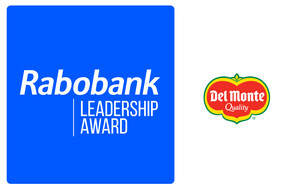
Rabobank Report: Global Sugar Industry Q2 2013
Fourth Year of Global Surplus Predicted
NEW YORK, June 26, 2013 /PRNewswire/ -- Rabobank has published a new report on the global sugar industry, looking at issues of supply, demand and pricing in 2013 and 2014.
In the report, published by the bank's Food & Agribusiness Research and Advisory team, the bank says that the global sugar market has been maintaining its downtrend over the last few months. NY No. 11 prices reached USc 16.21/lb in mid June, a level not seen for three years. Projections for most of the key producing countries are heading towards meeting or exceeding expectations for the 2012/13 international crop year, and the current supply/demand balance features the largest surplus in the last 15 years.
Rabobank's preliminary projections for 2013/2014 point to a fourth year of surplus, estimated to be around 3.7 million tonnes of sugar, suggesting no near-term respite for international sugar prices.
Rabobank sugar analyst Andy Duff commented, "As the 2012/2013 international crop year enters its last quarter, international sugar prices should be increasingly driven by the sentiment and perspectives for the 2013/2014 season. Although the estimated 3.7 million tonne sugar surplus is far from the 12 million tonne surplus projected for 2012/2013, it nevertheless implies a further rise in global stock levels and no decline in the global stocks/consumption ratio."
According to Rabobank, Northern Hemisphere prospects are weighing on sugar prices. Whereas a large harvest in Brazil's Center/South is already likely to be priced into today's sugar market, it is only recently that Northern Hemisphere producers have started to disclose projections for their 2013/2014 crops. With only modest declines forecast for India and China, and a possible increase in output suggested for Thailand, the preliminary outlook for several of the Northern Hemisphere's Asian heavyweights suggests no prospect of substantial reductions in sugar output.
Meanwhile, the recent strengthening of the U.S. dollar is likely to reduce dollar-denominated commodity prices across the board. The weakening of the Brazilian real versus the U.S. dollar also affects the attractiveness of ethanol in relation to sugar, lowering the level of the world sugar price to a point at which millers begin favoring ethanol over sugar production. In the short term at least, a weaker real has made sugar production more attractive than ethanol, which could have knock-on consequences for the percentage of cane that Brazilian millers allocate to sugar and ethanol respectively.
"Given the dramatic weakening of the real in recent weeks, the impact of turbulence in the currency markets on sugar prices will be particularly important in the immediate days and weeks ahead," added Duff.
Rabobank's report on the global sugar industry is available to media upon request.
Rabobank Group is a global financial services leader providing wholesale and retail banking, leasing, real estate services, and renewable energy project financing. Founded over a century ago, Rabobank is one of the largest banks in the world, with nearly $1 trillion in assets and operations in more than 40 countries. In North America, Rabobank is a premier bank to the food, beverage and agribusiness industry. Rabobank's Food & Agribusiness Research and Advisory team is comprised of more than 80 analysts around the world who provide expert analysis, insight and counsel to Rabobank clients about trends, issues and developments in all sectors of agriculture. www.rabobank.com/f&a
For a social media-ready version of this press release:
http://rabobank-food-agribusiness-research.pressdoc.com
Follow us on Twitter: @rabofoodagri
SOURCE Rabobank







Share this article